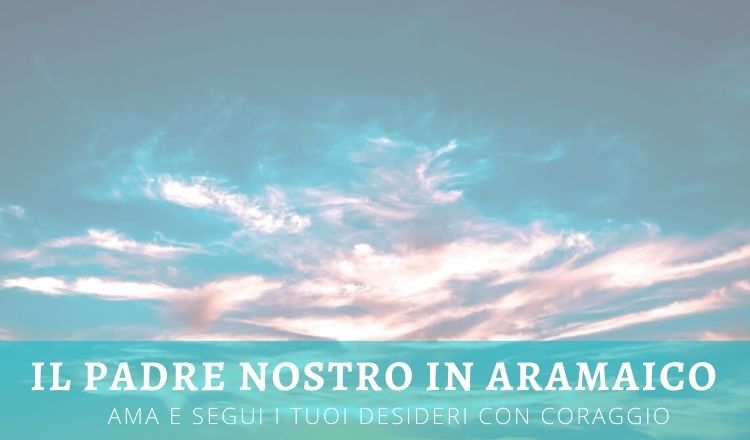Il Padre Nostro in Aramaico

Il Padre Nostro in Aramaico (da finire)
Abwûn
“Oh Thou, from whom the breath of life comes,
d’bwaschmâja
who fills all realms of sound, light and vibration.
Nethkâdasch schmach
May Your light be experienced in my utmost holiest.
Têtê malkuthach.
Your Heavenly Domain comes.
Nehwê tzevjânach aikâna d’bwaschmâja af b’arha.
Let Your will come true – in the universe (all that vibrates)
just as on earth (that is material and dense).
Hawvlân lachma d’sûnkanân jaomâna.
Give us bread (understanding, assistance) for our daily need,
Waschboklân chaubên wachtahên aikâna
daf chnân schwoken l’chaijabên.
detach the ropes of faults that bind us,
like we let go the guilt of others.
Wela tachlân l’nesjuna
Let us not be lost in superficial things (a common temptation),
ela patzân min bischa.
but let us be freed from that what keeps us off from our true purpose.
Metol dilachie malkutha wahaila wateschbuchta l’ahlâm almîn.
From You comes the all-working will, the lively strength to act,
the song that beautifies all and renews itself from age to age.
Amên.
Sealed in trust, faith and truth.
I confirm that with my whole being
The Aramaic Language doesn’t distinguish between means and purpose, inside quality and outside acting. Both are given simultaneously: what you’ve sown, you’ll harvest. When Jesus relates to the “Kingdom of Heaven” he means the Kingdom inside and in the middle amongst us. Also “the next one” is inside and outside just as the whole Self. The arbitrary borders between spirit, body and soul fall apart.
The Aramaic has (like the Hebrew and Arabic) different levels of meaning. The words are organized and defined by a poetical system where different meanings of every word are possible. So, every line of the Lords Prayer could be translated to English in many different versions.
ALAHA, ALLAH, ELOAH, ELAT, EL SHADDAI, ABBA










